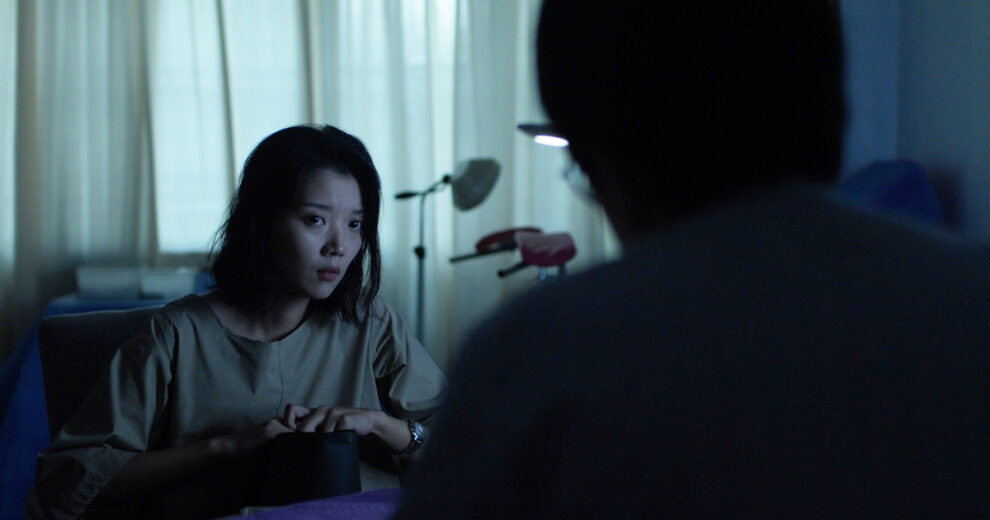The concept of fetuses being diagnosed with potential disabilities has been tormenting people since the particular technology became available. Medicine's answer to the question of what parents should do in these cases is quite adamant, with doctors almost always suggesting abortion. What happens however, when someone actually wants to keep such a baby, and are there any possibilities for at least a semblance of normal life? Zhou Zhou tries to reply to these questions in “Unborn Soul”, an Australian-Chinese co-production that had its world premiere in Osaka.
Unborn Soul is screening at Osaka Asian Film Festival

Qinq Chen is a teacher of Chinese opera who is carrying a child and is under a lot of pressure, since she has to look for an uncle with cerebral palsy and eventually, Zhang Yue, a student who has had an unplanned pregnancy. Furthermore, since her 60+ old uncle is causing issues in the nursing home, he is at risk of being kicked out, while Qinq Chen, a bit later, receives news that her baby has a 70% chance of being born disabled, with the doctor suggesting an abortion. Qinq Chen, however, feels different, and her mentality brings her into a clash with her loving husband, Lin Jung. The intervention of his uncle complicates things even more.
Zhou Zhou directs a film that unfolds in two contextual axes. The first one concerns the issue with people with cerebral palsy, with him presenting the concept in all thoroughness, starting with the diagnosis of infants. Featuring a number of people with the disease, the movie shows how some of them eventually manage to adapt, occasionally even getting work (as masseurs for example). Furthermore, the presence of Qinq Chen's uncle shows how the lives of those that manage to reach old age is, cementing the documentary-like thoroughness here.
Check also this interview
The second axis is the drama-fiction one, mostly revolving around the friction between the two spouses and the concept of the decision in the particular case. Regarding this dilemma, it is interesting to examine it through the perspectives of the two contradicting opinions on the subject. Lin Jung and the doctors essentially represent the logical decision, which is abortion, since the chances for complications in the birth as much as condemning three people in misery (the newborn and the two parents) are quite high. Through this perspective, Qinq Chen's argument seems illogical and self-indulgent, but the analysis of her character and her thoughts, which are also presented through imaginary dialogues between her and the fetus, show another opinion, more based on sentiment than logic, which does find some justification after a point. The ending of the story, however, definitely does not place Qinq Chen on the ‘winning side'. Lastly, Lin Jung's perspective highlights the patriarchal point of view, which, expectedly, is the most despicable.
At the same time, and although the narrative is mostly grounded in reality, there are moments where it crosses into surrealistic territory, starting with the aforementioned dialogues, and continuing with the places the two spouses meet on occasion. This last aspect actually extends to other parts of the movie, which leads to a rather significant tour guide element, which, in combination with the surrealism, induces the movie with an oneiric sense deriving from Qinq Chen's actions and thoughts.
These aspects are also ‘guided' by the 4:3 cinematography by Min Wang, which definitely adds to the aforementioned sense, particularly through the foggy scenery and the occasional mid and long shots frequently showing the sea and the sky, and a number of truly picturesque locations. The editing, by Zhou Zhou himself, results in a mid-tempo that occasionally becomes much slower, in art-house fashion, although the truth is that the surrealistic with the realistic are not exactly well-connected here, while some arcs, such as the one with the pregnant girl, are somewhat disconnected from the rest of the narrative.
Chi Yun as Qing Chen gives an impressive performance, with her using her rather uniquely beautiful face exceptionally in order to highlight her character's mentality, with the various clashes she experiences being the highlights of her performance. Nang Wang as Lin Jung is also quite good, particularly in the way he shows both his love for his wife and his anger and perplexion about her decision.
Despite some issues, mostly deriving from a somewhat forced effort to make the movie more arty, “Unborn Soul” emerges as a competent film, which succeeds both as a drama and as a thorough examination of the phenomenon of cerebral palsy.














